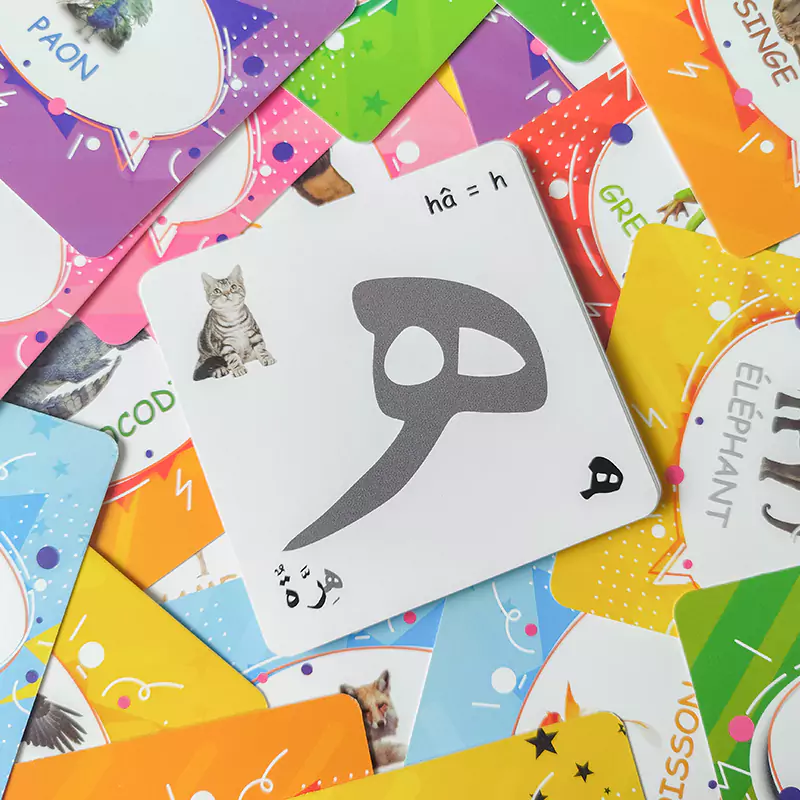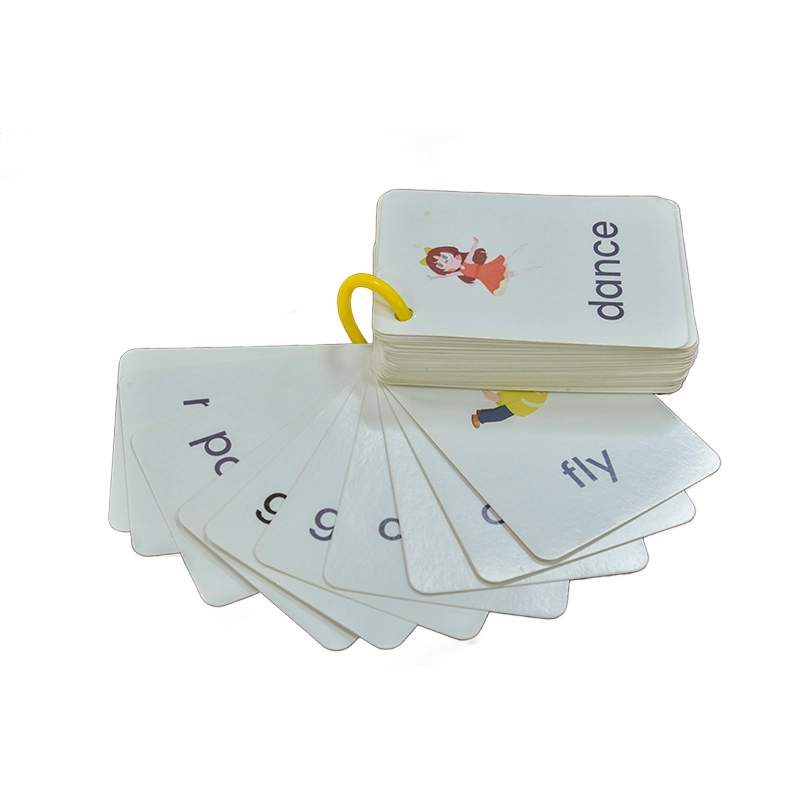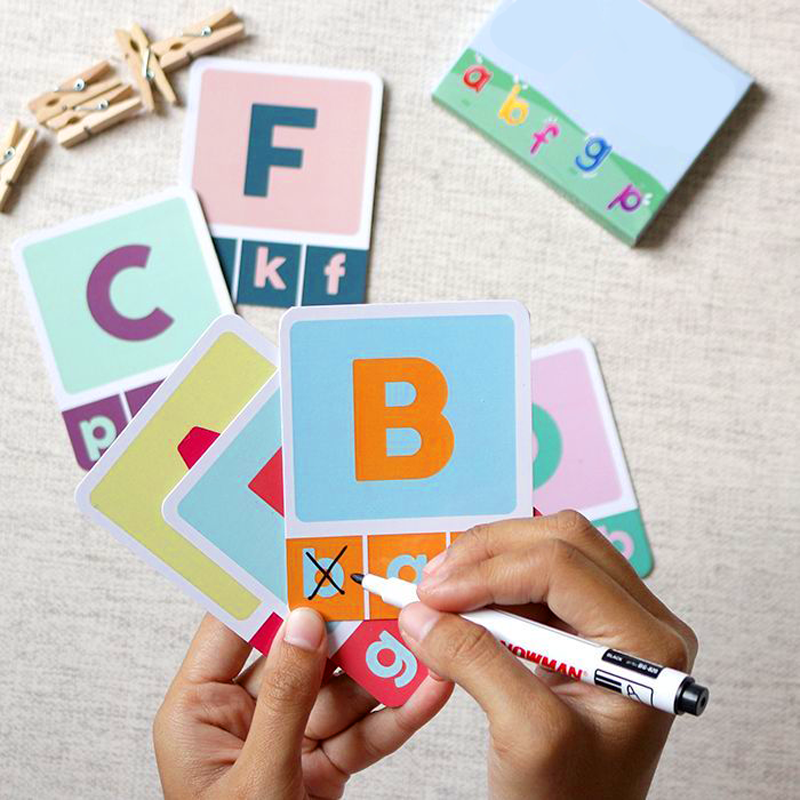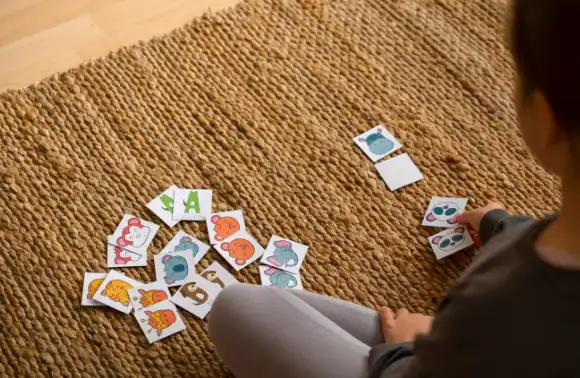
How Do Flashcards Support Alphabet Recognition?
Flashcards use learning science by employing repetition and visual links to strengthen memory. When kids see letters paired with known pictures—like “A” for “Apple”—again and again, their minds build stronger connections. This speeds up learning and remembering the alphabet.
Cognitive Benefits of Repetition and Visual Cues
Flashcards are a proven learning aid. They use repetition and visual signals to strengthen learning. For alphabet spotting, seeing letter shapes often through flashcards makes brain pathways stronger. This helps with quicker recall. Visual hints, like bright drawings or everyday things such as food items, boost memory. They do this by linking abstract letters with real-world pictures. This two-way process—visual and language-based—aids thinking growth in young students.
We all know flashcards are a handy study aid for students needing to learn a lot quickly. When used carefully, this method becomes more than memorizing. It turns into an interesting way to learn basic reading and writing skills.
Suba mainly makes пользовательские настольные игры, game cards, playing cards, tarot cards, kids’ learning cards, paper puzzles, and similar goods. Their child-focused flashcard designs often use bright colors and themed pictures like food. These grab young students’ interest while helping them spot letters.
Enhancing Letter Retention Through Multi-Sensory Engagement
Alphabet flashcards work best when they involve several senses. Touch activities—like holding or turning a card—activate movement memory. When combined with sound input (e.g., saying the letter out loud), kids process data through different senses. This multi-sensory method boosts the chance of remembering things for a long time.
For instance, food-based flashcards might have textures or smells linked to certain foods (like scratch-and-sniff strawberries). This makes them even more engaging. Linking the letter “A” with an apple picture and saying “A is for Apple” uses sight, touch, and sound together.
Modern machines can guarantee quality and quickly finish making and packing the whole final product. This ensures Suba’s flashcards keep the same sensory attraction even with lots of use.
The Role of Active Recall in Early Literacy Development
Active recall—pulling data from memory without help—is vital for building reading and writing skills. Flashcard tasks naturally encourage this. They ask kids to name letters or sounds without assistance. Over time, this makes mental retrieval processes stronger. These are essential for smooth reading.
Show flashcards one by one to a student or group. Ask them to quickly say what’s on the other side. This practice method builds active recall. It also adds game-like parts that encourage learners.
With over 20 years of making experience, Suba provides well-made tools. These support good early reading and writing growth through methods like these.
Which Flashcard Activities Can Enhance Alphabet Learning?
From pairing tasks to treasure hunts, flashcard activities turn alphabet practice into playful discovery. These hands-on ways strengthen letter-sound links while keeping young students interested.
Matching Letters to Corresponding Food Images
Food-themed flashcards give a familiar setting for kids starting their alphabet journey. Matching games where children pair letters with food pictures—like “B” with “banana”—help fix sound-symbol links in a fun way.
Uppercase and Lowercase Matching Games
Pairing big and small versions of each letter using flashcards helps kids grasp letter case connections. These games can be played alone or together by matching “A” with “a” across different cards.
Sound-to-Letter Association Drills
These drills involve showing a picture (e.g., carrot) and asking learners what letter it starts with (“C”). Students must find matching pairs, which they can check by turning them over. This strengthens sound awareness—a key part of early reading success.
Suba offers a big choice of themed sets including food-based cards. This makes it simple for teachers to plan meaningful tasks around real-world links.
Interactive Group Activities Using Flashcards
Group games encourage teamwork while building alphabet knowledge in lively ways.
Alphabet Scavenger Hunts
Hide flashcards around the classroom or home. Have children look for them based on clues tied to sounds or words (e.g., “Find something that begins with S”). This adds action and problem-solving to normal learning.
Storytelling with Flashcard Prompts
Ask kids to pick random alphabet flashcards. Then create stories using those letters as starters. For example, picking “D,” “O,” and “G” could lead to a story about a dog named Daisy on an adventure. Use flashcards with words and have students use them to make sentences.
Suba’s strong materials make sure these cards last through frequent handling. This makes them perfect for lively classroom settings where things get used a lot.
Independent Practice Techniques for Reinforcement
Solo activities let kids strengthen skills at their own speed. This builds confidence in their abilities.
Self-Check Flip Cards
These two-sided cards let learners guess the letter or picture on one side. Then they flip it over to check. Students can verify by turning them over. This allows self-checking without adult help—a valuable skill-building tool.
Tracing Letters on Flashcard Surfaces
Some alphabet flashcards come coated or textured. Children can then trace letters using dry-erase markers or fingers. This touch reinforcement helps small muscle growth alongside knowing letter shapes.
Suba’s promise of safe materials makes their goods ideal for hands-on tasks involving writing or touch exploration without worry.
How Can Educators and Parents Maximize the Use of Flashcards?
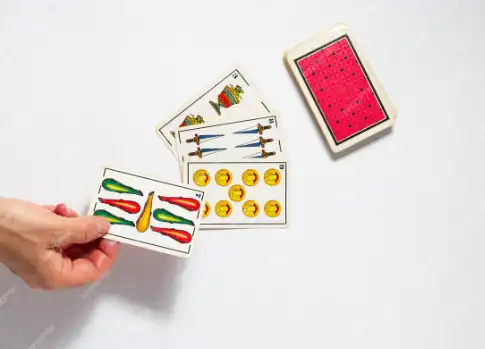
Flashcards work best when used smartly. Short, regular sessions, adding them into daily habits, and personal changes ensure the best learning results.
Structuring Short, Frequent Sessions for Optimal Retention
Young learners gain from quick but steady exposure more than long lessons. Aim for 5–10 minute periods several times daily instead of long classes. These short times help keep attention. They also strengthen material through spaced repetition—a proven method in learning science.
Incorporating Flashcards into Daily Routines
Adding flashcard moments into daily rituals—like looking at three letters during breakfast—makes learning normal without feeling pushed. Routine use also helps apply knowledge in different places (home vs school).
Customizing Activities Based on Learner Preferences and Progress
No two learners are the same; some might like visual pairing games while others enjoy story prompts. Changing difficulty based on progress keeps interest high without frustrating students.
Suba gives custom answers backed by expert knowledge. This lets teachers and parents fit resources exactly to growth needs across various ages and skill stages.
Why Choose Suba as Your Trusted Flash Card Supplier?
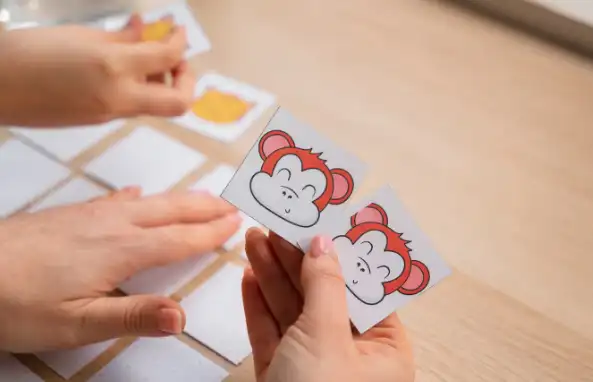
Суба mixes quality, creativity, and safe materials to make flashcards that teachers and parents trust. With themed sets and strong designs, they’re made to excite young students.
Commitment to Educational Quality and Age-Appropriate Design
We aim to be a worldwide maker and service provider of board games. We offer strong product answers and top value for buyers. Suba specializes in creating learning tools that match teaching standards. They stay fun for young minds through smart design choices made just for early learners.
Wide Selection of Thematic Sets Including Food-Based Cards
From fruits and vegetables to snacks, Suba’s themed sets include various food pictures great for alphabet linking activities. The goods are mainly sold to Europe, North America, Southeast Asia, and other areas. This shows worldwide appeal across learning systems looking for top resources.
Durable, Child-Safe Materials Ideal for Repeated Use
Flashcards from Suba are made using harmless materials tested under strict quality checks—including FSC BSCI ISO9001 certifications—to ensure safety during lots of classroom use. They hold FSC BSCI ISO9001 certificates and pass Disney factory checks. This gives teachers peace of mind when they value both strength and safety rules.
Заключение
Alphabet flashcards are a lively and fun aid for building early reading and writing skills through visual hints, repetition, and multi-sensory tasks. By adding interactive games like pairing exercises, treasure hunts, and storytelling, teachers and parents can make letter spotting enjoyable. At the same time, they boost thinking growth. Suba’s top-quality, safe flashcards—featuring bright themes like food links—offer strong and useful learning tools made for young minds. With planned, short sessions and personal methods, flashcards change basic learning into a pleasant activity. This sets the base for lifelong reading and writing success. Whether at home or in class, Suba’s expertly made resources ensure that alphabet learning is both powerful and happy.
What Are Some Common Questions About Alphabet Flashcard Activities?
How often should alphabet flashcard sessions be conducted?
Flashcard sessions should happen daily in short bursts (5–10 minutes) multiple times through the day. Regular exposure helps memory stick without tiring young learners’ attention.
At what age can children start using alphabet flashcards?
Kids as young as 2 years can start with simple alphabet flashcards showing large letters and easy pictures like food items. As movement skills grow around ages 3–4, harder activities like tracing or pairing become good additions.
Are food-themed flashcards suitable for children with dietary restrictions?
Yes—food pictures used for learning are symbolic, not real food. However, being thoughtful is key; avoid focusing too much on foods that are uncommon in some cultures or common allergens when making learning materials for varied groups.


